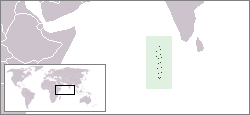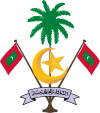Related Research Articles
Apostasy is the formal disaffiliation from, abandonment of, or renunciation of a religion by a person. It can also be defined within the broader context of embracing an opinion that is contrary to one's previous religious beliefs. One who undertakes apostasy is known as an apostate. Undertaking apostasy is called apostatizing. The term apostasy is used by sociologists to mean the renunciation and criticism of, or opposition to, a person's former religion, in a technical sense, with no pejorative connotation.

The Kingdom of Saudi Arabia is an Islamic absolute monarchy in which Sunni Islam is the official state religion based on firm Sharia law. Non-Muslims must practice their religion in private and are vulnerable to discrimination and deportation. While no law requires all citizens to be Muslim, non-Muslim foreigners attempting to acquire Saudi Arabian nationality must convert to Islam. Children born to Muslim fathers are by law deemed Muslim, and conversion from Islam to another religion is considered apostasy and punishable by death. Blasphemy against Sunni Islam is also punishable by death, but the more common penalty is a long prison sentence. According to the U.S. Department of State's 2013 Report on International Religious Freedom, there have been 'no confirmed reports of executions for either apostasy or blasphemy' between 1913 and 2013.
Apostasy in Islam is commonly defined as the abandonment of Islam by a Muslim, in thought, word, or through deed. An apostate from Islam is referred to by using the Arabic and Islamic term murtād (مرتدّ). It includes not only explicit renunciations of the Islamic faith by converting to another religion or abandoning religion altogether, but also blasphemy or heresy, through any action or utterance which implies unbelief, including those who deny a "fundamental tenet or creed" of Islam.

Zakir Abdul Karim Naik, commonly known as Zakir Naik is an Indian Islamic televangelist and public orator who focuses on comparative religion. He is the founder and president of the Islamic Research Foundation (IRF) and the Peace TV Network. Naik has said that his goal is to "concentrate on the educated Muslim youth who have become apologetic about their own religion and have started to feel the religion is outdated".

Mohamed Nasheed GCSK is a Maldivian politician and activist currently serving as the 19th speaker of the People's Majlis since May 2019. A founding members of the Maldivian Democratic Party, he served as President of the Maldives from 2008 until his resignation in 2012. He is the first democratically elected president of the Maldives and the only president to resign from office.

Hassan Saeed was the former Attorney General of the Republic of Maldives, a role in which he served from November 11, 2003 to August 5, 2007, and is the current managing partner of Chambers Inn, a leading corporate law firm. He is also the Managing Director of Premier Property Pvt Ltd, the country’s leading real estate management, sales, and rental company.

Ahmed Shaheed is a Maldivian diplomat, politician and professor. On 24 March 2016, he was appointed for the sixth year running as the United Nations Special Rapporteur on the human rights situation in the Islamic Republic of Iran. Dr Shaheed is also the Chairperson of the Geneva-based international human rights think-tank, Universal Rights Group, which was launched in January 2014. He now lives in England, as Visiting Professor of Human Rights Practice at the University of Essex.
The 2008 Constitution of Maldives designates Sunni Islam as the state religion. Only Sunni Muslims are allowed to hold citizenship in the country and citizens may practice Sunni Islam only. Non-Muslim citizens of other nations can practice their faith only in private and are barred from evangelizing or propagating their faith. All residents are required to teach their children the Muslim faith. The president, ministers, parliamentarians, and chiefs of the atolls are required to be Sunni Muslims. Government regulations are based on Islamic law. Only certified Muslim scholars can give fatawa.

Lesbian, gay, bisexual, and transgender (LGBT) persons in Maldives face legal challenges not experienced by non-LGBT residents.
Youcef Nadarkhani is an Iranian Christian pastor who was sentenced to death in Tehran as being a Christian having been born into Islam. Initial reports, including a 2010 brief from the Iranian Supreme court, stated that the sentence on Nadarkhani was based on the crime of apostasy, renouncing his Islamic faith. Government officials later claimed that the sentence was instead based on alleged violent crimes, specifically rape and extortion; however, no formal charges or evidence of violent crimes have been presented in court. According to Amnesty International and Nadarkhani's legal team, the Iranian government had offered leniency if he were to recant his Christianity. His lawyer Mohammad Ali Dadkhah stated that an appeals court upheld his sentence after he refused to renounce his Christian faith and convert to Islam In early September 2012, Nadarkhani was acquitted of apostasy, but found guilty of evangelizing Muslims, though he was immediately released as having served prison time. However, he was taken back into custody on Christmas Day 2012 and then released shortly afterwards on 7 January 2013.

The Progressive Party of Maldives, also known by its abbreviationPPM, is an Islamist political party in Maldives with a total membership of 37,093 as of 11 July 2021. The stated goal of the party is driving Maldives towards an independent and democratic, safe and secure, high income, high human capital, developed nation state with a diversified and robust economy whilst preserving its Islamic heritage.
Ismail Khilath Rasheed is a Maldivian blogger known for his support of religious tolerance and his involvement in several national controversies. Reporters Without Borders has described him as a "leading journalist" and "one of his country’s leading free speech advocates".
Human rights in the Maldives, an archipelagic nation of 417,000 people off the coast of the Indian Subcontinent, is a contentious issue. In its 2011 Freedom in the World report, Freedom House declared the Maldives "Partly Free", claiming a reform process which had made headway in 2009 and 2010 had stalled. The United States Bureau of Democracy, Human Rights and Labor claims in their 2012 report on human rights practices in the country that the most significant problems are corruption, lack of religious freedom, and abuse and unequal treatment of women.
Ali Ahusan Ihusan is a Maldivian Journalist, a self-employed web designer and the owner of Islamic publications; Dhiislam Magazine and Dhiislam Online news. He also was a member of Maldives Media Council from 2018 to 2020.

Husnu Al Suood is a Justice of the Supreme Court of the Republic of Maldives since 8 December 2019. He was the Attorney General of the Maldives from June 2009 to August 2010. He served as the Chief Judge of the Civil Court and as a member of the Judicial Service Commission of Maldives. He also served as a member of the National Human Rights Commission of the Maldives from 2003 to 2005. As a member of the Special Majlis Suood participated in drafting the current constitution of the Republic of Maldives.

According to a study by Humanists International (HI), Afghanistan is one of the seven countries in the world where being an atheist or a convert can lead to a death sentence. According to the 2012 WIN-Gallup Global Index of Religion and Atheism report, Afghanistan ranks among the countries where people are least likely to admit to being an atheist.

Alhan Fahmy was a Parliament member of the 17th People's Majlis sitting of Maldives representing the Addu Atoll Feydhoo Constituency representing the then, opposition party Dhivehi Rayyithunge Party under the leadership of former president Maumoon Abdul Gayyoom.
Capital punishment for non-violent offenses is allowed by law in some countries. Such offenses include adultery, apostasy, blasphemy, corruption, drug trafficking, espionage, fraud, homosexuality and sodomy, perjury, prostitution, sorcery and witchcraft, theft, and treason.
Ex-Muslims are people who were raised as Muslims or converted to Islam and later renounced the religion. Leaving Islam is a uniquely individual experience and a growing social phenomenon facing its challenges due to the conditions of Islam, Islamic culture, and - depending upon the context - the local culture, which leads to ex-Muslims' increasingly organized literary and social activism. Ex-Muslims also organize groups to build mutual support networks to meet life's challenges after abandoning religious practices.

The situation for apostates from Islam varies markedly between Muslim-minority and Muslim-majority regions. In Muslim-minority countries, "any violence against those who abandon Islam is already illegal". But in some Muslim-majority countries, religious violence is "institutionalised", and "hundreds and thousands of closet apostates" live in fear of violence and are compelled to live lives of "extreme duplicity and mental stress."
References
- ↑ "International Religious Freedom Report for 2017". www.state.gov. Retrieved 30 December 2018.
- ↑ "Maldives's Constitution of 2008" (PDF). constituteproject.org. Retrieved 29 October 2017.
- ↑ "Maldives". Freedom of Thought Report. International Humanist and Ethical Union . Retrieved 12 November 2017.
- ↑ "MALDIVES 2012 INTERNATIONAL RELIGIOUS FREEDOM REPORT" (PDF). 2012. Retrieved 2015-08-05.
- ↑ "Maldives: non-Muslims to lose citizenship : News :: Inspire Magazine". www.inspiremagazine.org.uk. Retrieved 2015-08-05.
- ↑ "Maldives enacts regulation for death penalty". Al Jazeera English. 1 May 2014. Retrieved 12 November 2017.
- ↑ "Maldives should repeal new regulation providing for death penalty, says UN rights office". UN News Centre. United Nations. 29 April 2014. Retrieved 12 November 2017.
- 1 2 Maldivian man asks Naik about what the verdict is to be regarding his lack of faith Youtube 2010-06-03
- ↑ Maldivian renounces Islam, gets attacked by Zakir Naik audience Archived 2011-08-10 at the Wayback Machine Haveeru Daily (English Ed.) 2010-05-30
- ↑ What will happen to the Maldivian who renounced Islam? Archived 2010-08-30 at the Wayback Machine Haveeru Daily (English Ed.) 2010-05-31
- ↑ Maldivian who renounced Islam reverts back Archived 2010-12-12 at the Wayback Machine Haveeru Daily (English Ed.) 2010-06-01
- ↑ Islamic Foundation calls for death sentence if apostate fails to repent Archived 2010-06-02 at the Wayback Machine Minivan News 2010-05-30
- ↑ JJ Robinson (July 14, 2010). "Hanged air traffic controller sought asylum for fear of religious persecution". Minivan News. Archived from the original on July 17, 2010. Retrieved July 16, 2010.
- ↑ Charles Haviland (15 July 2010). "Maldives atheist who felt persecuted 'hangs himself'". BBC News.
